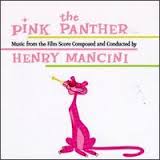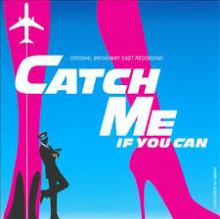Soundtrack Madness: Instrumentals
 Film scores have been around a lot longer than compilations, and they continue to be one of the most effective ways to evoke mood and emotion in a movie. The albums in this quad of the brackets are completely instrumental, with a few exceptions of soundtracks that include a theme song (such as Titanic’s “My Heart Will Go On). Though the music in many of these soundtracks is chosen to create mood in their film, these albums are good enough to listen to in their own right. As usual, you can stream these by clicking the album images. Enjoy!
Film scores have been around a lot longer than compilations, and they continue to be one of the most effective ways to evoke mood and emotion in a movie. The albums in this quad of the brackets are completely instrumental, with a few exceptions of soundtracks that include a theme song (such as Titanic’s “My Heart Will Go On). Though the music in many of these soundtracks is chosen to create mood in their film, these albums are good enough to listen to in their own right. As usual, you can stream these by clicking the album images. Enjoy!
Clockwork Orange (1) vs. Catch Me If You Can (16)
These are both unique mixes of new material with old classics. Clockwork Orange takes classical Beethoven, Elgar, and Rossini and mixes it with electronic synthesizer and a bit of new music by Wendy Carlos that heavily borrows themes from the other pieces on the soundtrack. The first use of the vocoder in recordings is said to be on this album, which may or may not be a good thing. Catch Me If You Can is far from being John Williams’ most familiar music, but I think that works to the album’s advantage, since you can listen to it without imagining strong characters like Indiana Jones, E.T., or Harry Potter. The Williams score is interspersed with some classic smooth jazz standards.
Titanic (9) vs. Psycho (8)
Neither of these soundtracks were what the films’ directors originally intended them to be. James Horner was the second choice to Enya for the soundtrack of Titanic (which continues to be one of the highest selling instrumental scores worldwide). Bernard Herrman was Hitchcock’s first choice for Psycho, thirty-seven years before Titanic was released, but Herrman had been instructed to score the film with jazz in order to lower the budget. Instead, Bernard used a smaller orchestral string ensemble, in a score that is unforgettable whether heard with the film or without.
Star Wars (5) vs. Pather Panchali (12)

This is probably the most unfortunate match-up of the brackets. Though Ravi Shankar is an Indian music legend, and the music from Pather Panchali is said to have directly influenced the Beatles, it simply doesn’t have the popularity of John Williams’ Star Wars, which is beyond classic. Although it’s only seeded 5th by its critics, it has the potential to take this whole competition.
The Social Network (13) vs. Blade Runner (4)

 With the exception of Grieg’s “In the Hall of the Mountain King”, The Social Network is nearly entirely original score for the film by Trent Reznor and Atticus Ross. Similarly the soundtrack to Blade Runner is mostly comprised of the Vangelis composed score. Though Blade Runner wasn’t officially released until a whole decade after the film came out, it is often considered a landmark for electronic music.
With the exception of Grieg’s “In the Hall of the Mountain King”, The Social Network is nearly entirely original score for the film by Trent Reznor and Atticus Ross. Similarly the soundtrack to Blade Runner is mostly comprised of the Vangelis composed score. Though Blade Runner wasn’t officially released until a whole decade after the film came out, it is often considered a landmark for electronic music.
2001: A Space Odyssey (3) vs. The Mission (14)

 A compilation of classical music from Ligeti, Richard Strauss and Johann Strauss is epic even without the long sweeping shots of a space station. Ennio Morricone’s oboe theme alone makes the soundtrack for The Mission memorable. Though sometimes haunting, this soundtrack is far less intense than the film, making it easy to return to.
A compilation of classical music from Ligeti, Richard Strauss and Johann Strauss is epic even without the long sweeping shots of a space station. Ennio Morricone’s oboe theme alone makes the soundtrack for The Mission memorable. Though sometimes haunting, this soundtrack is far less intense than the film, making it easy to return to.
The Pink Panther (11) vs. The Godfather (6)

 What stands out most from both of these fantastic soundtracks/scores are their brilliant and memorable theme songs. However, there is much more to these albums than their title tracks. Mancini fills out The Pink Panther with his super cool and peppy jazz, using a whole lot of vibes and strings and hip-swinging beats. For the most-part, The Godfather has an utterly Italian folk feel (you got to keep it in the family!), and uses an operatic sense of themes and motifs, which make their way into multiple melody lines played by trumpet, clarinet, accordion and mandolin over dark and minor orchestral strings. Both of these soundtracks are renowned for the way they create a musical landscape for their films, but how do they hold up as albums? You tell me.
What stands out most from both of these fantastic soundtracks/scores are their brilliant and memorable theme songs. However, there is much more to these albums than their title tracks. Mancini fills out The Pink Panther with his super cool and peppy jazz, using a whole lot of vibes and strings and hip-swinging beats. For the most-part, The Godfather has an utterly Italian folk feel (you got to keep it in the family!), and uses an operatic sense of themes and motifs, which make their way into multiple melody lines played by trumpet, clarinet, accordion and mandolin over dark and minor orchestral strings. Both of these soundtracks are renowned for the way they create a musical landscape for their films, but how do they hold up as albums? You tell me.
Drive (7) vs. Gone With The Wind (10)

 I was surprised to see Drive show up as often as it did on the different critics’ best soundtracks lists, since I was previously unfamiliar with it. Drive begins with a few songs written in the same electronic/europop vein before including the score from Cliff Martinez as the rest of the album. Gone With the Wind’s soundtrack is basically the score, and is laid out in huge sweeping orchestral dramatics, and songs titled by their relationship to plot points.
I was surprised to see Drive show up as often as it did on the different critics’ best soundtracks lists, since I was previously unfamiliar with it. Drive begins with a few songs written in the same electronic/europop vein before including the score from Cliff Martinez as the rest of the album. Gone With the Wind’s soundtrack is basically the score, and is laid out in huge sweeping orchestral dramatics, and songs titled by their relationship to plot points.
Chariots of Fire (15) vs. The Piano (2)

 Although a couple of decades separate them, these two soundtracks make a pretty fair matchup, as two beautiful and powerful piano-heavy instrumental scores that add depth and thoughtfulness to the stories they tell. Chariots of Fire put Vangelis on the film score map, and provided the often-referenced “Titles”, which has practically become an unofficial theme for the Olympics. The main theme from The Piano is a stunning highlight, and although less sporty, this soundtrack is more versatile, fitting diverse contexts.
Although a couple of decades separate them, these two soundtracks make a pretty fair matchup, as two beautiful and powerful piano-heavy instrumental scores that add depth and thoughtfulness to the stories they tell. Chariots of Fire put Vangelis on the film score map, and provided the often-referenced “Titles”, which has practically become an unofficial theme for the Olympics. The main theme from The Piano is a stunning highlight, and although less sporty, this soundtrack is more versatile, fitting diverse contexts.




